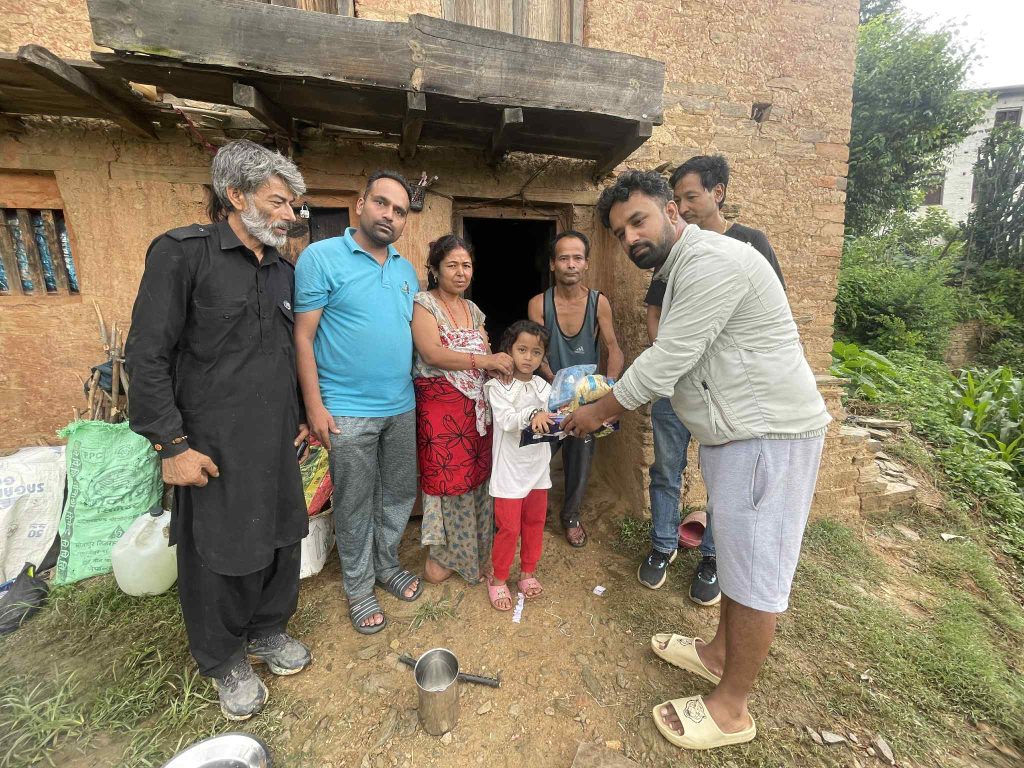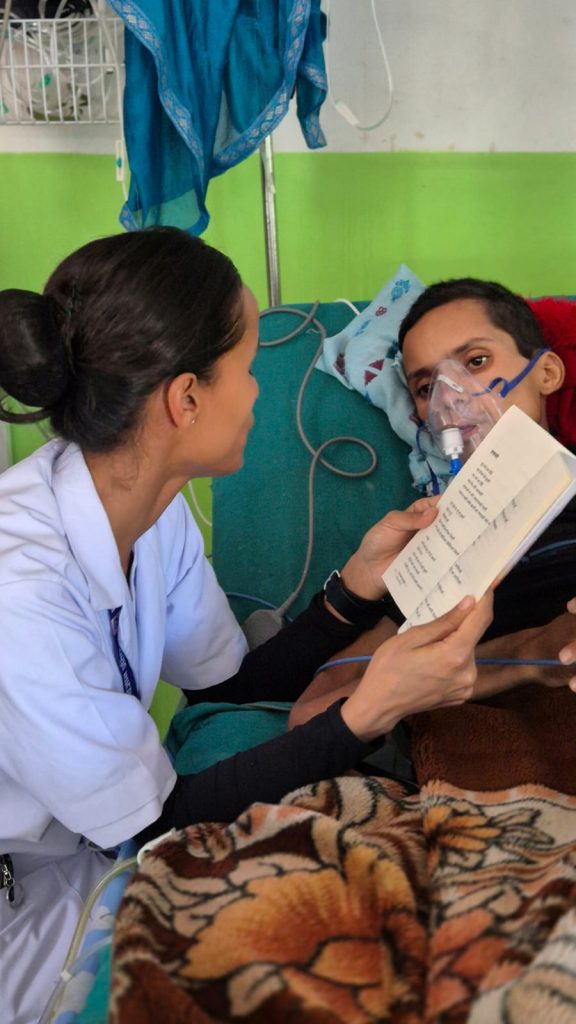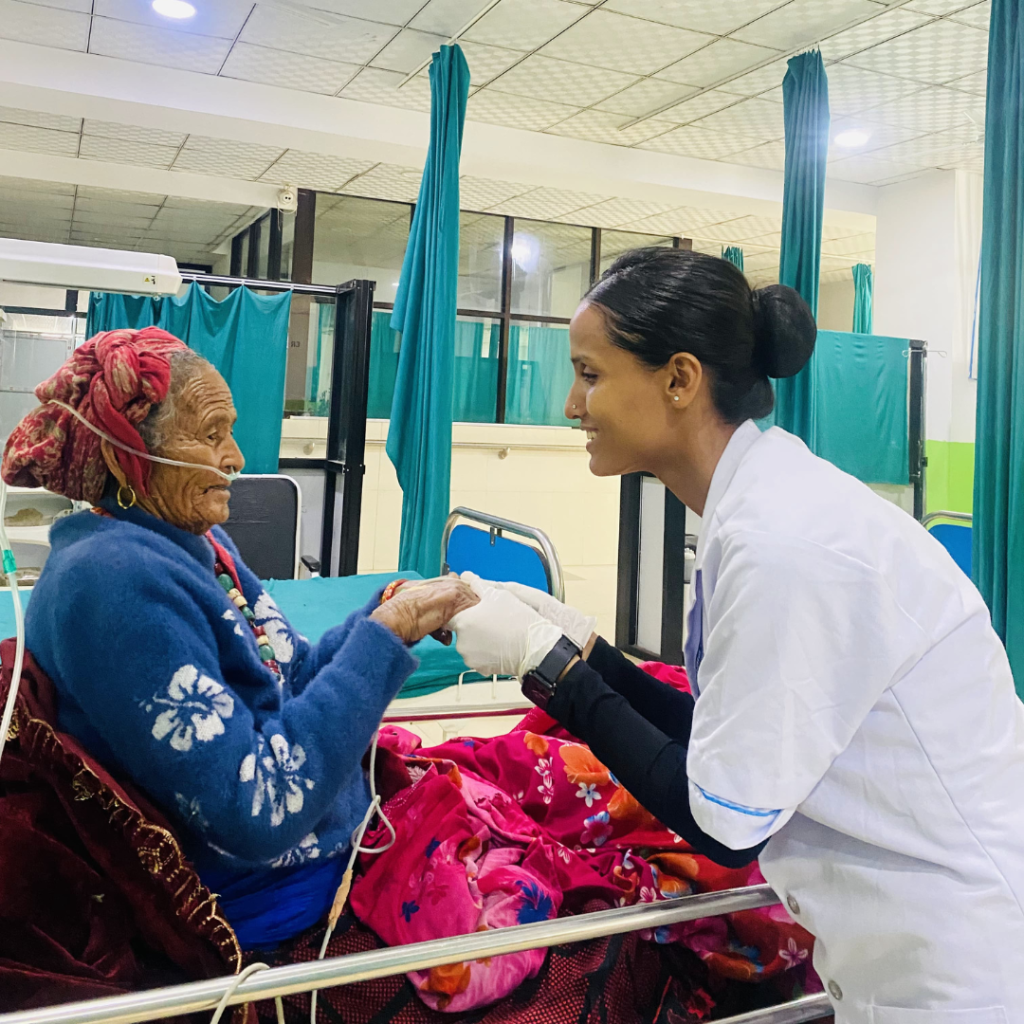In the remote hills of Karnali, Nepal, access to healthcare is not just a matter of medicine—it’s a matter of humanity. Here, where rugged terrain separates villages and health centres are few and far between, DFN health professionals bring more than just clinical expertise. They bring compassion, patience, and presence — which often make the greatest impact.
Recently qualified DFN doctor, Man Darji, recalls a recent encounter with a family living in an isolated village, all of whom were living with disabilities, including their five-year old daughter. While he provided the necessary medical advice, what stood out more was what he did after the check-up. ”We helped with stationary and some groceries…they are in difficulty even to run a household”
Likewise, DFN Nurse Satya Ukheda’s role goes beyond her clinical work. During her recent district posting, she spent time reading aloud with a 14-year-old patient with a terminal illness and making videos with him.


In remote regions, these everyday acts of kindness bridge the gap where resources fall short. While clinical training and improved resources are essential, it’s the soft skills—empathy, listening, emotional support—that often define the quality of care. For patients who do access healthcare, it’s not just about being treated. It’s about being seen, heard, and valued.

